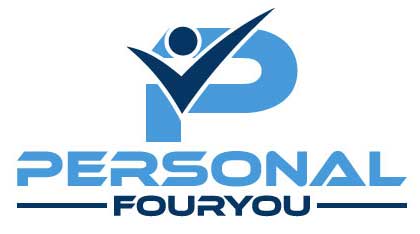
Kurs Na Prawo Jazdy Online
Eine Bewertung hinzufügen FolgeÜbersicht
-
Gründungsdatum Februar 26, 1974
-
Sektoren Maschinen und Anlagenbau
-
Gepostete Jobs 0
-
Gesehen 27
Beschreibung des Unternehmens
5 Lessons You Can Learn From Preparation For Practical Exam Online
Preparation for Practical Exams Online: A Comprehensive Guide
In recent years, the landscape of education has undergone substantial changes, especially with the increase of online learning platforms. As universities increasingly embrace mixed learning environments, practical exams have actually transitioned to online formats. Preparing for these practical exams needs strategies customized particularly to the digital world. This post aims to supply trainees with a helpful guide to successfully navigating practical exam preparation online.
Comprehending Practical Exams
Practical examinations are evaluations created to assess a student’s hands-on abilities in a specific subject location. Unlike standard written examinations, practical examinations need trainees to show their capabilities through real-world situations or simulations. Common examples consist of:
- Laboratory assessments in science classes.
- Technical skill assessments in engineering or computer science.
- Performance evaluations in fields such as music or theater.
Significance of Preparing for Practical Exams
Preparation for a practical exam is vital for numerous factors:
- Skill Mastery: Adequate preparation guarantees that students are familiar with the methods and abilities they will be tested on.
- Time Management: Understanding the format and requirements assists trainees assign their time efficiently throughout the exam.
- Self-confidence Building: Preparation results in increased self-confidence, permitting trainees to perform better under pressure.
Steps to Prepare for Online Practical Exams
Creating a solid preparation technique is necessary for online practical examinations. Below are key steps to consider:
1. Comprehend the Exam Format
Familiarize yourself with how the practical exam will be conducted online. This might consist of:
- Video presentations.
- Interactive simulations.
- Remote observation by instructors.
Understanding these aspects enables trainees to customize their preparation accordingly.
2. Develop a Study Plan
A structured study plan can help trainees track their preparation.
Example Study Plan:
| Week | Focus Area | Activities |
|---|---|---|
| Week 1 | Essential Concepts | Evaluation of core product and key theories. |
| Week 2 | Ability Development | Hands-on practice exercises and simulations. |
| Week 3 | Mock Exams | Complete practice examinations under timed conditions. |
| Week 4 | Last Preparation | Evaluation feedback from mock examinations and refine skills. |
3. Collect the Necessary Resources
Identify and gather the tools and materials you will need for the exam. This might consist of:
- Software applications ensuring compatibility with the exam platform.
- Any specific tools or equipment (e.g., scientific calculators, coding environments) required for your field of research study.
4. Practice, Practice, Practice
Routine practice is key! Here are some efficient approaches to enhance abilities:
- Simulations: Use Kurs Na Prawo Jazdy Online simulations that duplicate the practical scenarios you will experience during the exam.
- Video Recordings: Record yourself performing tasks to evaluate your skills and keep track of enhancement.
- Peer Learning: Collaborate with classmates from another location to mimic exam conditions and critique each other’s performance.
5. Clarify Doubts Early
Don’t wait until the eleventh hour to solve unpredictabilities. Engage with instructors or peers to clarify any doubts well before the exam date.
6. Prepare Your Environment
Ensure your research study or examination space contributes to concentration. Consider:

- Technical arrangements (computer system setup, stable internet).
- Very little diversions (quiet space, limited disruptions).
- The required equipment at hand (e.g., cameras, microphones).
7. Time Management During the Exam
Throughout the practical exam, effective time management is critical. Here are some ideas:
- Read the Instructions Carefully: Understand exactly what is needed before starting.
- Focus on Tasks: Start with jobs you are most comfy with to build momentum.
- Monitor Time: Develop a habit of regularly inspecting the time to ensure you stay on track.
FAQs About Preparation for Online Practical Exams
Q1: How should I prepare if I’m not acquainted with the technology?
- A1: Familiarize yourself with the technology ahead of time. Utilize guide videos and develop practice tests using the platform to enhance your comfort level.
Q2: Are there specific research study techniques that work best for practical tests?
- A2: Visualization techniques, hands-on practice, and mentor principles to peers can offer reliable reinforcement of practical abilities.
Q3: What should I do if I encounter technical concerns throughout the exam?
- A3: Inform your instructor instantly. Have a backup strategy all set, such as a different device or area, to ensure you can continue the exam without substantial interruption.
Q4: How can I lower anxiety before an exam?
- A4: Prepare completely, practice relaxation strategies, and get involved in mock tests to produce familiarity and reduce stress and anxiety.
Preparation for practical examinations in an online setting requires a tactical approach that incorporates both standard research study techniques and developments in innovation. By comprehending the format, creating efficient study strategies, practicing carefully, and guaranteeing a favorable environment, students can reinforce their opportunities of success. As education continues to progress, mastering practical exam preparation will act as a vital ability, equipping trainees to master both academic assessments and their future professional ventures.

